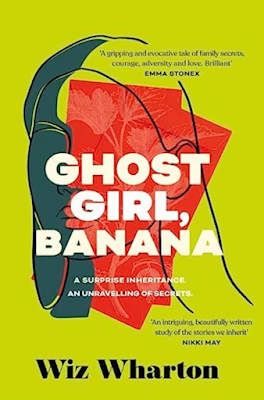World War I in the Far East was a sideshow in the grand scheme of things, but it had long-reaching implications, setting up further conflict in the region. Nevertheless, the main action, the Battle of Tsingtau, was full of drama, bravery, and suffering, which is covered in the book – The Siege of Tsingtau: The German-Japanese War 1914 by Charles Stephenson.
Thursday, 16 November 2023
Wednesday, 16 August 2023
The Peking Express by James M. Zimmerman
In 1923, the Blue Express, a luxury train also known as the Peking Express, departed from Shanghai, chugging northward to Peking. On the night of May 5th, near the town of Lincheng, a gang of Chinese bandits derailed the Peking Express and took the passengers hostage, leading to a standoff that captured the world’s attention.
Saturday, 15 July 2023
Play the Red Queen - A Vietnam War Crime Thriller
Saigon 1963 – multiple American military advisers and South Vietnamese Army officers are gunned down by the mysterious Red Queen, a deadly Vietnamese assassin. Two MP detectives, Ellsworth Miser and Clovis Robeson, are called in to investigate but find themselves stumbling into a mystery that's much deeper with international implications.
Thursday, 29 June 2023
Ghost Girl, Banana: Elaine Chiew Chats With Acclaimed Debut Novelist Wiz Wharton
About the Book:
Set between the last years of the “Chinese Windrush” in 1966 and Hong Kong’s Handover to China in 1997, a mysterious inheritance sees a young woman from London uncovering buried secrets in her late mother’s homeland in this captivating, wry debut about family, identity, and the price of belonging.
Hong Kong, 1966. Sook-Yin is exiled from Kowloon to London with orders to restore honor to her family. As she strives to fit into a world that does not understand her, she realises that survival will mean carving out a destiny of her own.Thirty years later in London, having lost her mother as a small child, biracial misfit Lily can only remember what Maya, her preternaturally perfect older sister, has told her about Sook-Yin. Unexpectedly named in the will of a powerful Chinese stranger, Lily embarks on a secret pilgrimage across the world to discover the lost side of her identity and claim the reward. But just as change is coming to Hong Kong, so Lily learns Maya’s secrecy about their past has deep roots, and that good fortune comes at a price.
Heartfelt, wry and achingly real, Ghost Girl, Banana marks the stunning debut of a writer-to-watch.
About the Author:
 |
| Wiz Wharton, Courtesy of Author |
_________________________
EC: Congratulations on your debut novel, Ghost Girl, Banana, which has just launched to much critical acclaim in the UK. In your acknowledgement, you mentioned the story’s inception as ‘the discovery of some old-fashioned floppy discs in a box’. Can you tell us about how a whole novel was borne out of this discovery?
WW: Yes, so this happened back in 2020 when I was moving house and discovered the discs in a box of my late mum’s possessions. Initially, I had no idea what they were, and it was only later that I discovered they were transcriptions of her diaries, kept since she arrived in the UK in the early sixties as an immigrant from Hong Kong. Although painful to read in parts, they were also transformative in revealing so many of her experiences which she had never really spoken about during her lifetime. That stoicism is germane to many women of that generation, I think, as much as it’s also a cultural thing, but I remember wondering how many other hidden stories there were out there, and what a tragedy it was that they weren’t more represented in the British fiction space. As much as a novel is always an ambitious creative project to embark upon, I had a whole wealth of information in front of me to draw upon, so I was very fortunate in that respect.
Sunday, 5 September 2021
The Japanese Home Front 1937 - 1945 by Philipp Jowett & Adam Hook
As I’ve stated many times, there’s long been a blind spot about the Asian Theater of World War II. You can stack the books written about Nazi Germany and Imperial Japan side by side, the former would dwarf the latter. When books do appear about Japan during World War II, they are usually about the front in the Pacific, or, less often, in the Chinese and Burma theaters. A notable exception is Japan At War: An Oral History. However, Osprey Publishing has recently released The Japanese Home Front 1937 – 1945, which aims to help fill that gap.
Saturday, 5 September 2020
When the Red Gates Opened: A Memoir of China's Reawakening
The 1980s was a period of rapid change and economic growth for China. In 1979, paramount leader Deng Xiaoping opened special economic zones in southern China, experimenting with market capitalism. Dori Jones Yang, a reporter for BusinessWeek, saw China’s rise in the 1980s and has recorded it for her memoir When The Red Gates Opened.
Thursday, 6 August 2020
Japan's Asian Allies - A Look at the Collaborationist Regimes of World War II
Sunday, 5 July 2020
The Bitter Peace by Philip S. Jowett - Conflict in China 1928-1937
Friday, 5 June 2020
Golden Kamuy Volumes 1-5 - A Shonen Manga of Adventure and History
Sunday, 3 May 2020
Japan's Greatest Victory, Britain's Worst Defeat - A Memoir of the Battle of Singapore
Saturday, 4 April 2020
Osprey's Japanese Armies 1868 - 1877 - The Boshin War and Satsuma Rebellion
Wednesday, 18 March 2020
The Day The Music Died: Elaine Chiew Sits Down With Fairoz Ahmad
Thursday, 13 February 2020
Japanese Destroyer Captain - A Memoir of The Pacific War
Monday, 3 June 2019
Eminent Historian Professor Wang Gungwu converses with Elaine Chiew on his autobiography, Home Is Not Here
 |
| Photo courtesy of NUS Press |
From the book jacket:













